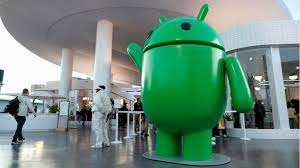With a slow pour at first, the barista lifted and tilted the jug like she was painting the petals of a tulip in a choreographed dance. Then she tipped the jug of silky, foaming milk over the latte.
It can take months or even years of practice to become an expert in latté art, but this artificial intelligence-powered barista has no such problems.
This week, during this year’s annual CES technology trade exhibition in Las Vegas, a variety of robots created a sensation on the show floor.
Roman Alejo, 34, works as a barista at the Sahara hotel-casino on the Las Vegas Strip. He is concerned about advances like these and wonders if the days of hospitality jobs in the era of artificial intelligence are running out.
“Because tomorrow is never guaranteed, it is frightening,” he remarked. “There is a lot of AI entering the planet. The idea that people could consider displacing one another with themselves is both terrifying and enlightening.
Only a little over a month after the Las Vegas casino workers union ratified new contracts for 40,000 members, ending a heated, high-profile battle that brought attention to AI’s danger to union jobs, the world’s largest tech expo brought those anxieties back into the public eye.
Ted Pappageorge, the secretary-treasurer of the Culinary Workers Union, who oversaw the teams that negotiated new five-year contracts and nearly prevented a historic strike at more than a dozen hotel-casinos on the Strip, stated, “Technology was a strike issue and one of the very last issues to be resolved.”
During eight months of negotiations, hospitality employees told reporters in interviews that they were prepared to forgo a salary decrease during a strike to secure better job protection against the unavoidable march of technology. This includes automated valet ticket services, self-check-in kiosks, and “tipsy robots,” or robot bartenders, which are currently in use at several resorts.
The union has been keeping an eye on the rise of automation in the hospitality and service sectors, according to Pappageorge. “The combination of artificial intelligence and robotics” is what makes a difference today, he told reporters this week.
AI technological advancements, according to experts, have compelled labor unions to reconsider their approach to business negotiations.
Unions now need to be “much more deliberate” in their talks for job security, according to Bill Werner, an associate professor in the University of Nevada, Las Vegas’s hospitality department.
In five years, for instance, when the Culinary Union’s contract expires, the kinds of casino union jobs that could be in jeopardy might be very different.
“What is going to happen to these people, and what rights do they have?” he questioned. “And if a robot replaces them at work, what will happen to them?”
The union secured $2,000 in severance pay for each year of service if a job is abolished by technology or AI, as well as the ability to attempt to transfer to a different area inside the corporation, which bolstered its so-called safety net for employees.
According to Pappageorge, to safeguard workers from both current technology and “technology that we don’t even know is coming,” they had to “develop a new language.”
“There is tremendous potential for harm from the notion that robotics, artificial intelligence, and technology are simply out of control,” Pappageorge stated. Therefore, it is imperative that we stay ahead of the curve, and CES is the place to be.
Attending this week’s trade expo, about a hundred union members looked around to see what new technologies might jeopardize jobs in casinos.
Furthermore, the show floor included a ton of new stuff: Friendly-faced robots that complete deliveries in hotels and restaurants. An automated massage therapist. Robots that can make and serve ice cream, coffee, or boba. AI-powered smart grills that can handle operations like broiling and searing without a human in the kitchen. And, as one business described it, “autonomous restaurants” in the future, teased by robots that resemble chefs.
Meng Wang, one of the over 4,000 exhibitors at this year’s CES and co-founder of the culinary tech startup Artly Coffee, stated he is not in the business of doing away with jobs. Wang stated that the service industry is experiencing a labor shortage, but Artly’s autonomous barista bots can help.
Baristas work extremely hard. It requires a lot of labor and lengthy hours. He remarked, “The pay is not that good.” “We’re not doing this to replace jobs. We are expanding the availability of specialty coffee and meeting market needs.
However, Werner asserted that professions in the casino union that don’t involve direct customer contact, including housekeeping, food preparation, and cooking, are seriously threatened by AI.
“A lot of the risk associated with automation is removed when the industry is not concerned about how automation will affect customer service,” he stated. This is particularly true for a popular tourist location like the Las Vegas Strip, where visitors anticipate first-rate experiences and service, including the newest technological advancements.
Because of this, he claimed, Las Vegas is “a good place to test these things and see how customers react to them.”
Like Alejo the barista, the Culinary Union and its members recognize that the hospitality sector is always changing.
Alejo said, “The innovations are incredible.” “But the fact that everything seems to revolve around technology in today’s world is unsettling.”

















